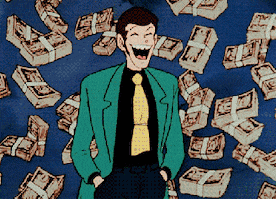Why hard money is better money.
TL;DR:
- The amount of money can either increase or decrease (or stay the same); monies that increase in supply lose value i.e., can purchase fewer goods per unit (and vice versa)
- Historically government-issued fiat money is easy to produce – it has grown in supply quickly, lowering real wages, hurting purchasing power, and damaging savings
- Bitcoin is quantitatively tight or hard money ⇒ coin issuance is difficult and is set to regularly contract until the 21 million supply cap is reached
- If bitcoin continues to be demanded then the diminishing supply will lead to an appreciation in individual value
Central banks, like the Federal Reserve, issue government currency. This currency was traditionally just ink and paper, but today it’s mostly digital. Since the creation of the Fed in 1913, the US government has relied more and more on currency creation for its funding, devaluing individual units of currency.
One of these ways the Fed creates currency is by buying government (and recently corporate) bonds from the Treasury with new digital dollars. Called quantitative easing, this was first used in 2008 to offset the mortgage lending crisis.
When other non-government groups create money, it’s called fraud. But, when the state produces money it is deemed necessary and even beneficial. However, more and more people today are protesting savings devaluation. Some even have argued QE is debt monetization and has led to greater income inequality by providing welfare to the already rich.
In late 2008, early 2009 coder(s) Satoshi Nakamoto designed a new means of protest. He created a decentralized, scarce, immutable, and censorship-resistant currency called bitcoin. For years, people have been buying this currency; some view it as a speculative asset, others a get-rich-quick scheme, and to some, it’s a hedge against inflation. Whatever it is, bitcoin is a way to opt-out, a quiet and nonviolent protest.
Bitcoin is quantitatively hard – i.e. it is hard (non-trivial) to produce. As time goes on less and less of the currency will be issued. By around 2140 no new coins will be issued, meaning that bitcoin will be the hardest asset in the world.
All but the handful of people on the Fed’s board don’t get to print money. And the people with first access to the new money are wealthy asset holders whose valuations are bid up. They get to buy goods and assets at yesterday’s prices with new money, while everyone else sells goods and wealth that was actually costly to produce.

So, if you’re not on the Fed board and don’t get an early access pass to the new money bitcoin may be for you. Although it is still in many ways a new technology, its scarcity has made it a better choice for storing wealth than the dollar. And the possible technological improvements, which regularly occur, could make it an excellent investment.
With Lolli, you can earn this scarce asset for free by shopping! We have over 1,000 partners and are always adding new retailers to give you the most options to earn bitcoin. Our goal is to make bitcoin more accessible to all, spreading the benefits of freer money to everyone. Here’s how you can get started.
Here is how to get started:
Download Lolli for Chrome, Microsoft Edge, or Firefox and shop at your favorite retailers!
Follow us on Twitter, Instagram, and join our Facebook for exclusive deals!!
Read The Beginners Guide to Earning Bitcoin for Free.
Happy Stacking,
The Lolli Team🍭

